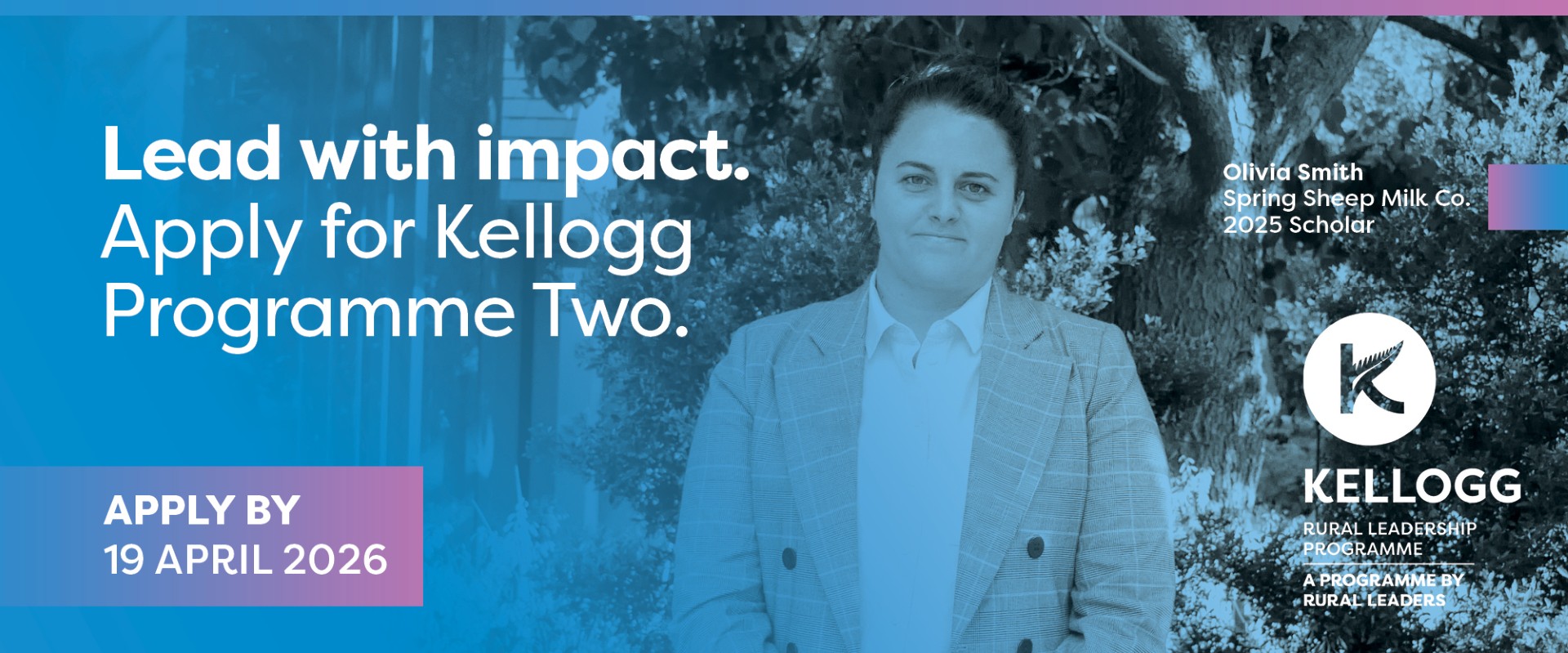Kellogg applications are open to leaders across our primary industries.
Applicants are selected based on their passion for community, ability to demonstrate effective decision making, commitment to the rural sector, and aspirations to be a rural leader. You can fill out an online application form as soon as you’re ready to apply. Successful and unsuccessful applicants will be notified within one month of the application deadline.
If you’re not quite ready to apply, please register your interest below. This will help us keep you in the loop with regular emails containing news and information about Kellogg.
Places do fill up quickly, so it’s wise to get your application process underway, sooner rather than later. We look forward to hearing from you soon.
If you have any questions about the application process or the programme, contact Dr Lyndsey Dance, Programmes Manager at lyndseydance@ruralleaders.co.nz.
Register your interest
"*" indicates required fields
Make sure you are aware of our funding and scholarship options if you intend to apply for any of these along with your Kellogg application. When you fill out the online form you will need to indicate whether or not your application for Kellogg is dependent on funding.
There are many options for funding available in food and fibre. It’s a good idea to do plenty of research on what might be available for you.
Selection process
Step One
Participants for each course are carefully selected to create a diverse group covering: industry sector, gender, age, geographic location and leadership experience.
Step Two
Referees will be contacted in some cases to gain a greater understanding of an individual’s motivation for wanting to join the programme.
Step Three
Successful applicants are advised of their application outcome at least two months before the programme’s start date. Applicants then have 5 – 7 days to confirm their acceptance.
Unsuccessful Applicants
Unsuccessful applicants are notified after all programme places are filled, e.g. 5-7 days after offers have been made.
It is recommended that unsuccessful applicants who met the entry criteria, reapply for a position on the next preferred course. First consideration is usually given to these applicants.
Non acceptance is often be due to the mix of applicants on the programme, e.g. the number of applicants from the same sector.
How to write a successful application.
The Kellogg Application process is a merit based selection process.
When completing your application try to show examples of how you have stepped forward in leadership roles outside of your work.
We would also like to know what your future aspirations are, for example, how you want to change and influence your sector. Don’t forget to talk about how you want to change and grow as a leader too.
Click here for more tips and advice – this particular article was written for Nuffield, but it applies to Kellogg as well.
Register your interest to stay in the loop with programme updates, or get your application started today.



























